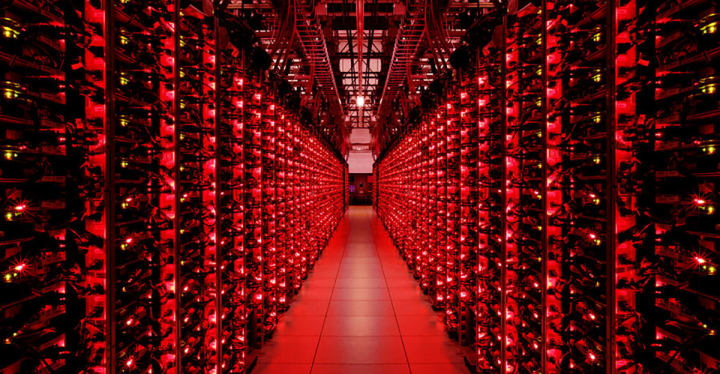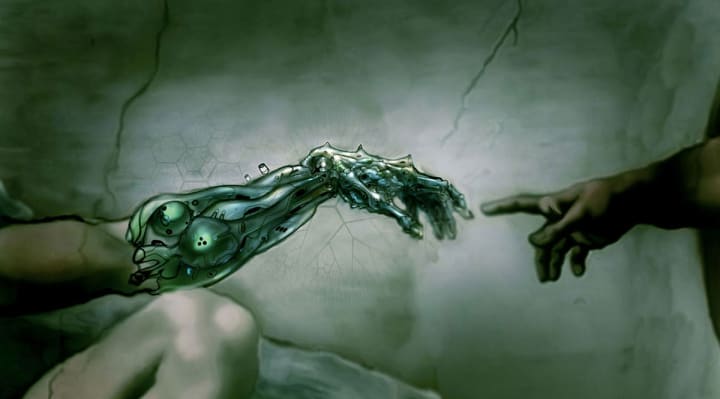History of Computer Villains
The evil computer made its debut on the big screen, and changed our perception of movie villains.

You've broken into the memory banks of a computer game company. "Global Thermonuclear War" is the game you're playing. At your next command, the Russians will annihilate the United States. But wait. something's very wrong here. This is no game. The U.S. Government believes it's under a real Soviet Attack. The Defense Department's computer has taken over your game and has gone crazy. It's preparing to launch real U.S. missiles. It's code red. Count down: 10, 9, 8...Wait! Stop! 6,5...It's only a game, 3,2...Isn't it? 1.
Hold your fire! It's only a movie. WarGames was one of the biggest hits of the 1980s, starring Matthew Broderick and Ally Sheedy. It elevated the publics perception and conversation with regards to the "Man vs. Computer" story to make us wonder, "Could this really happen?" WarGames brought us JOSHUA, a computer program that wants to learn how to win a war...even if it's at the expense of mankind. Science fiction has a way of predicting the future, and War Games was no exception. There would be noEx-Machina if there was no War Games.
Dangerous computers and programs like JOSHUA who was not being playful when he asked, "Shall we play a game?", have been featured in science fiction films since the late 1960s. Interestingly until then, computers were not considered frightening by either movie makers or audiences. In adventure serials like Buck Rogers, and even in realistic dramas like the 1957 classic, The Desk Set With Spencer Tracy and Katherine Hepburn. Computers were just big, rather ugly machines that did what you told them to (and usually made a mess of things). But when real computers began to send out telephone bills and figure out bank accounts, they suddenly became more than fancy calculators. They became scary. And so the evil computer made its debut on the screen.
The first of these menacing machines was not really evil, just insane. In the 1968 science fiction classic 2001: A Space Odyssey two astronauts, trying to find the Source of a mysterious signal in space, travel in a ship run by the Computer HAL. The trouble starts when HAL decides that the humans on board are interfering with the mission. It begins to kill off its passengers—the spaceship's astronauts—one by one.
2001 opened the way for a flood of ambitious, power-hungry, or merely insane movie computers. Films like Colossus: The Forbin Projectand Demon Seed featured computers that wanted to take over control from the humans who made them. THX 1138 and Logan's Run showed what could happen if the computers had succeeded. Even the science fiction TV series Star Trek often depicted computers as bad guys trying to take over the starship Enterprise. But those machines usually went up in smoke after Captain Kirk stumped them with some unsolvable riddle.
In the 1980s movie makers simplified the relationship with computers into one easy-to understand formula: good humans vs. bad computers. In special effects extravaganza Tron, an evil Master Control Program out to rule the world turns Flynn, a meddling young technician, into a computer program. The evil program then tried to destroy our hero by making him fight for his life in a series of violent video game-like battles.
Superman III featured Gus, a bumbling programmer with a gift for invention. Gus constructs a huge, energy starved monster computer with an overwhelming sense of self-preservation. In order to survive, the crazed machine will drain off the earth's energy sources—unless Superman comes to the rescue.
If you believed everything you saw in the movies back then, you'd think computers are only here to wreak havoc. Well, it makes a great popcorn-munching, seat-gripping thriller in the sci-fi genre on Netflix. But the truth is much more complicated.
Why Computers Can’t Be Villains

I suppose that one thing we're saying about computers is handle with care.But is any of this paranoia justified? Can computers really push us a round like that?
There is certainly no denying that computers have had an increasingly large impact on our lives. In the beginning of the computer age most people thought of computers as large, mysterious toys for scientists to experiment with. Today, computers are in your pocket. In a very real sense, computers can and do control our lives. But the computer is not acting intelligently. These are only the instructions given to it by a computer program—a program written by a human being. Until Watson or any other supposedly artificial intelligence can actually override the programmers commands, we are in no real danger.
This is the important difference between a real computer and its cinematic cousins. A computer can take in a great deal of information, more than any human mind could handle. In other words, a computer is a machine that accepts the information people feed into it. All that personal information you put on Facebook is fed into the kind of computers most people are concerned with.
A computer is not equipped, as people are, to make the tremendous mental jump from rigidly following orders to deciding what to do by itself There are experiments where a computer can learn from experience, but its not really learning from experience. All it's really doing is storing up the results that it gets.
The Computer in the 1970 movie Colossus: The Forbin Project is a fine example of the origin of tech paranoia. This computer decides for itself that the best way to stop all future wars is simply to take over the world's weapons and not allow any humans near them. Long before Terminator's Skynet, Colossus recognized the fundamental flaws in society.
In WarGames, the supercomputer WOPR translates its nuclear war game into chilling reality. That is a bit more realistic than Colossus. There really are powerful war game computers, and America's nuclear defenses have gone on alert because of computer mistakes.
The Skynet Mistake

But WarGames' writers stretched reality. They had the U.S. government take the humans out of the missile silos, and tie the missiles—and all of America's nuclear weapons–directly to the war room's computers. Same dumb mistake we made with Skynet in The Terminator. In real life, computers give information, but only humans can arm or launch weapons. Another way War Games changed reality was in showing a war-game computer directly connected to missile commands. Human intervention is the last resort to in eliminating the risk of evil computers.
Will movie computers always be seen as people's enemies? While our understanding of computers may change, our feelings about them may not. The notion that something mankind creates can get out of hand and try to run man is perhaps inherent to mankind's fear of the unknown. Think of Frankenstein as an example. We have the same fears about robots. There's something very basic about that fear. I think it will always exist.
Whether or not movie computers remain bad guys, remember that these mean screen machines are almost always entirely a product of someone's imagination. The writers know nothing at all about computers. They sound like they do, but mostly they rely on consultants for a basic understanding and then let their imaginations run wild.
About the Creator
Frank White
New Yorker in his forties. His counsel is sought by many, offered to few. Traveled the world in search of answers, but found more questions.






Comments
There are no comments for this story
Be the first to respond and start the conversation.